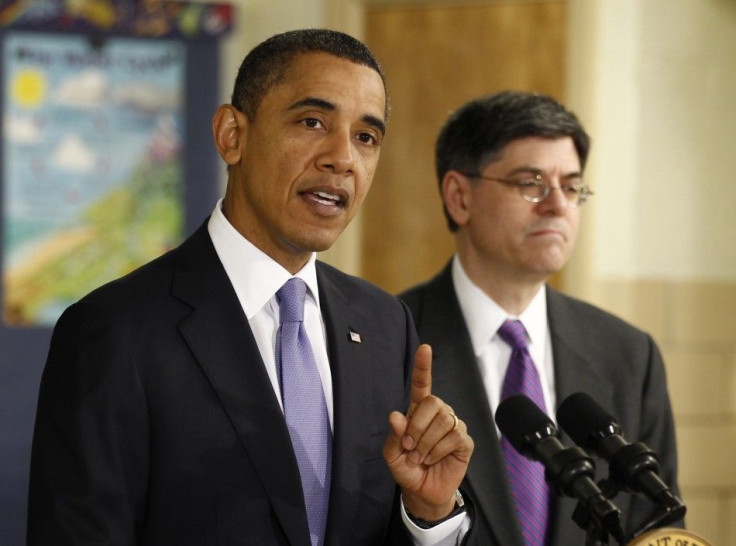The big questions Obama's budget doesn't address

The highlight of President Barack Obama's budget for fiscal year 2012 is the promise to bring the deficit down to about 3 percent of the gross domestic product (GDP) by 2015.
The president also plans to save as much as $1.1 trillion in spending cuts and tax hikes. What we have done here is make a downpayment, but there is going to be more work that needs to be done and it's going to require Democrats and Republicans coming together to make it happen, Obama said.
However, though the budget makes a start in the deficit reduction front, it avoids addressing some really big questions, according to Nigel Gault, chief U.S. economist at IHS Global Insight.
Here are the points that Gault raises:
High growth assumptions
The budget gets the federal deficit down to about 3% of GDP by mid-decade and holds it there, but it does rely on some optimistic growth assumptions – not for this year, but for 2013-2015 when GDP growth is assumed to run either above 4% or close to it every year.
New social security costs
Although the focus has turned away from stimulus to deficit reduction, the budget does seek to kick in an extra $250 payment for social security recipients this year (at a cost of nearly $15 billion), which is highly unlikely to be enacted. It also seeks to extend permanently several tax cuts that were part of the ARRA package and which would otherwise expire at the end of 2012.
Cuts not enough
There are cuts in discretionary spending, as foreshadowed in the State of the Union address, keeping spending frozen in dollar terms for five years. There are also cuts in defense, also as previously announced. But these aren't sufficient on their own to stabilize the deficit.
Revenue
The budget doesn't address the question of how best to raise extra revenues. It is honest in not pretending that expiry of AMT relief will really be a source of revenues. But tax reform in either personal or corporate taxation is conspicuously absent. There is plenty of revenue-raising, but it comes within the existing framework – for example by raising tax rates and lowering deductions for higher-income groups, by eliminating oil and gas tax preferences, by raising taxes on overseas business income. The budget also assumes that revenues will be raised to cover a new transportation spending bill, but doesn't specify how.
Tax issues
Although broad-based tax increases will eventually be needed, the administration continues to maintain that only the rich will pay more.
Entitlement reform
Nor does the budget address long-term entitlement reform in social security, Medicare or Medicaid. It does deal with the issue of the doc fix by providing relief from the cuts in physician payments that are built into current law – and includes savings to pay for it, though they're only specific through 2013.
Tax reform
The administration doesn't want to take the lead on tax reform or entitlement reform for fear that whatever it proposes will be torn to pieces by political opponents. The President's Deficit Commission put forward a set of comprehensive proposals, but the administration has not chosen to back them. The full debate on how to cut the deficit sustainably in the long term remains ahead of us, perhaps to take place during the 2012 elections.
Discretionary spending
We are left, for now, with the debate narrowly focused on how much and where to cut discretionary spending. And the crunch won’t wait for 2012, but is coming soon, because the continuing resolution that is funding the government for fiscal 2011 expires on March 4.
© Copyright IBTimes 2024. All rights reserved.




















